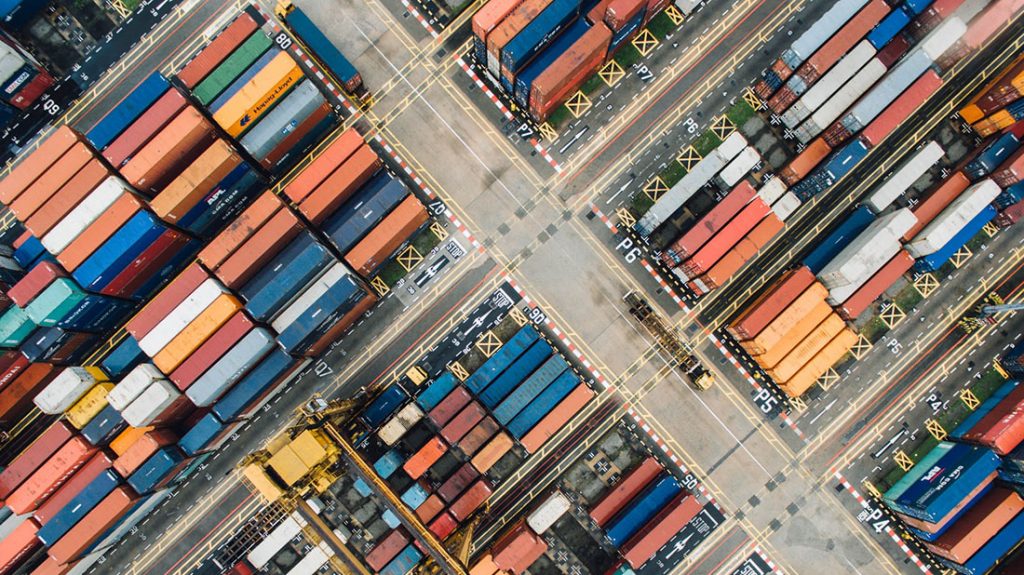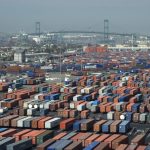Now What’s Hitting Container Shipping? Power Shortages?!
Over the last year and a half, shippers might have thought they’d seen it all. Astronomical freight rates, hundreds of blanked (cancelled) sailings, no-roll fees that basically amount to holding cargo ransom, months upon months upon months of port congestion, carriers denying shipping containers to U.S. exporters, terminal shutdowns over fear of COVID outbreaks even if there’s only a single positive test, record numbers of shipping containers falling into the ocean, a megaship blocking the Suez Canal by getting stuck in the middle, unfair detention and demurrage fees, trucker shortages, equipment shortages, abysmal carrier reliability so much so that giant shippers are resorting to chartering ships exclusively for their own goods… What else could possibly go wrong?

How about power shortages interrupting the supply chain?
There’s a power crunch happening in Europe and Asia, and it’s already impacting supply chains as Chinese factories are getting shut down in turns to conserve power.
Martina Li reported in The Loadstar:
Factories in at least ten Chinese provinces have either cut output or closed temporarily this month, after government-imposed power cuts to curb carbon emissions.
By Friday, at least 10 publicly listed companies told the Shanghai and Shenzhen stock exchanges their factory output had been hit by the power cuts, and their 2021 earnings could be adversely affected.
Greg Miller reports in a Journal of Commerce (JOC) article:
According to Bloomberg, power use is now being curbed by tight supply and emissions restrictions in the Chinese provinces of Jiangsu, Zhejiang and Guangdong.
Bloomberg quoted Nomura analyst Ting Lu as stating, “The power curbs will ripple through and impact global markets. Very soon the global markets will feel the pinch of a shortage of supply from textiles and toys to machine parts.”
Nikkei reported that an affiliate of Foxconn, the world’s biggest iPhone assembler and a key supplier of Apple and Tesla, halted production at its facility in Kunshan in Jiangsu Province on Sunday due to lack of electricity supply. Another Apple supplier, Unimicron Technologies, also halted production in Kunshan on Sunday, said Nikkei, citing regulatory filings.
Stoppages of Chinese factories would further delay deliveries of U.S. imports, which have already been waylaid by extreme congestion at ports in Southern California and, more recently, ports in China.
Fear of Global Warming
A large factor in this wave of power cuts interrupting supply chains is fear. In fact, it may be the number one factor. The fear is palpable with how Miller began his article about the power crisis:
There’s panic-buying of gasoline in the U.K. Natural gas prices in Europe and Asia are skyrocketing. Protests are breaking out across Europe due to spiking electricity bills. India and China are short of coal for utilities. Power is being rationed to factories in multiple Chinese provinces — and winter is coming.
That last line sends spine-shivering images of White Walkers descending from the north. There are certainly reasons to fear expensive power prices and especially power shortages in the winter. Look at what happened during the “Deep Freeze” in Texas with power grids failing and people dying of hypothermia.
Fear set up that tragedy. Fear, which led to power grids being dependent upon far more expensive but far less reliable solar and wind power. That fear has set up this power crisis in Asia, Europe, and throughout the world. It’s the fear pushed by alarmists saying things like, “the world will end in 12 years if we don’t address climate change…”
My point is not to deny climate change. However, I will point out that it’s popular voices like that of Rep. Alexandria Ocasio-Cortez (AOC), who was quoted above, that we listen to over the voices of people like Dr. Leslie Woodcock, emeritus professor at the University of Manchester (UK) School of Chemical Engineering and Analytical Science and former NASA scientist who was quoted in a Breitbart article as saying,
The term ‘climate change’ is meaningless. The Earth’s climate has been changing since time immemorial, that is since the Earth was formed 1,000 million years ago. The theory of ‘man-made climate change’ is an unsubstantiated hypothesis [about] our climate [which says it] has been adversely affected by the burning of fossil fuels in the last 100 years, causing the average temperature on the earth’s surface to increase very slightly but with disastrous environmental consequences.
…
This is not the way science works. If you tell me that you have a theory there is a teapot in orbit between the earth and the moon, it’s not up to me to prove it does not exist, it’s up to you to provide the reproducible scientific evidence for your theory.
Such evidence for the man-made climate change theory has not been forthcoming.
Big Costs Rather Than Big Evidence
That the evidence is not forthcoming, as Dr. Woodcock says, seems true. I’ve often dived into articles and papers about global warming and climate change to see and understand the evidence because I think it’s possible we add to global warming, I’ve been told we do, and there are so many costly policies based on the claim. I’ve read article after article and seen countless news segments where people have stated it’s undeniable that people are causing global warming. Unfortunately, they never share proof and rarely give any evidence, let alone compelling evidence. Please post such proof or evidence in the comments section below.
We’ve so effectively been sold on the fear of global warming, we don’t seem to be counting the costs of how we’re fighting it. From years of massively incentivizing solar and wind power – in the name of fighting global warming – over gas, coal, and nuclear power, we ended up with over 200 people dead, by many reports, during the “Deep Freeze” in a state that would otherwise be unlikely to have power grid problems.
Now we’re seeing the power crisis in Europe and China. Maybe you think the fight against global warming has nothing to do with factories getting shut down in China, a country notorious when it comes to polluting. Think again. The cuts are directly tied to carbon-neutrality goals. Li reports in her Loadstar article:
The cuts followed China’s economic planning agency, the National Development and Reform Commission, released a “dual-control” plan to restrict energy-intensive activities and consumption.
The plan commanded provincial governments to ration electricity consumption to control emissions in line with President Xi Jinping’s target for carbon emissions to peak by 2030, and to achieve carbon-neutrality by 2060.
Live Not By Fear
I think reducing pollution, including CO2 emissions is absolutely worth pursuing. In fact, I think you’d have trouble finding many people against doing so. It’s just important that we don’t do more damage out of fear of climate change, or whatever else politicians and the media push us to fear, than we do good.
There are those who don’t want us to count the costs of our actions. Let me expand a quote I included above. “Millennials, and Gen z, and all these folks that come after us are looking up, and we’re like ‘the world will end in 12 years if we don’t address climate change,'” AOC said, finishing the run-on sentence with, “and your biggest issue is how are we gonna pay for it?'”
Actually, my biggest issue there is either using massive hyperbole or just plain lying about 12 years until Doomsday to cause fear to exploit. However, putting that aside, yes. How are we going to pay for “it” is an important question. Are we going to pay for it by destroying power sectors and crashing economies upon which our children depend? Are we going to pay for it in more deaths from depending on unreliable wind and solar power? Those seem as worthy of fear as climate change. Or are we going to pay for it in prudent measures that may include reasonable sacrifices?
There is always an “it” to fear. When we give in to that fear is usually when we pay more than we even thought to consider.



